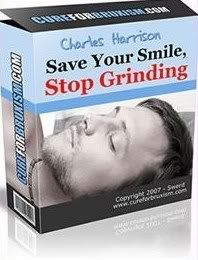Do you ever wake up in the morning with a sore mouth or jaw? Bruxism is the medical term for grinding teeth or jaw clenching, especially during sleep or while under stress. When a person grinds down their front teeth, the upper and lower jaw get closer together which gives a haggard appearance to the face when the mouth is closed.
Bruxism is a stress symptom that often has a major impact on dental health. People who have otherwise healthy teeth and gums can clench so often and so hard that over time their teeth become sensitive and they experience jaw pain and headaches.
Bruxers are often unaware that they have developed this habit of grinding teeth and, often have no idea that treatment is available until damage as already been done to the mouth and teeth.
Your dentist can best spot signs of bruxism in your mouth and jaw with regular visits and examinations. Talk with your dentist if you suspect that you are grinding your teeth. Bruxism is the involuntary, nervous teeth grinding while a patient is asleep and your dentist is best suited to spot evidence of this problem.
Grinding teeth is often not a major problem but sometimes it can be frequent and severe enough to lead to jaw disorders, headaches, damaged teeth and other problems. Muscle relaxants or botulism toxin may temporarily ease spasm in clenched and overworked jaw muscles when more conservative treatments fail. A nightguard is NOT a solution, rather a method of greatly decreasing the damagecaused by bruxing. The mouth guard that your dentist might suggest will not cure you of your teeth grinding. It only serves as a bandaid to cover up the problem and protect your teeth. It is best to try to uncover the source of the problem and eliminate your damaging habit of grinding teeth.
skip to main |
skip to sidebar

No comments:
Post a Comment